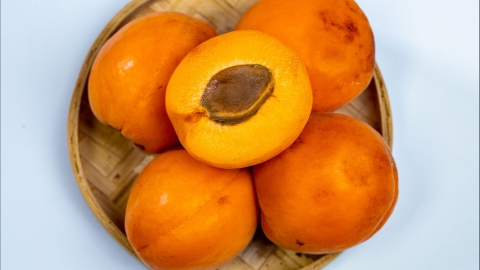How to Eat Apricots to Avoid Poisoning
In general, to avoid poisoning, one should eat apricots in moderation, choose ripe apricots, thoroughly wash them, remove the pits before consumption, and avoid eating them on an empty stomach. If any abnormalities occur, prompt medical attention is recommended. Detailed explanations are as follows:

1. Eat in moderation: Apricot kernels contain hydrogen cyanide, and excessive consumption may lead to poisoning. It is recommended to consume no more than 5-6 apricots at a time, especially for children and elderly individuals who should be more cautious.
2. Choose ripe apricots: Ripe apricots not only taste better, but also have lower toxicity. Unripe apricots have higher levels of hydrogen cyanide and may cause discomfort. When purchasing, choose apricots with smooth skin, even color, and soft texture.
3. Thoroughly wash: Before consumption, apricots should be thoroughly washed to remove surface pesticide residues and bacteria. Rinse under running water and gently brush the surface with a soft brush to ensure cleanliness and hygiene.
4. Remove the pit before eating: Apricot kernels contain hydrogen cyanide, and direct consumption may lead to poisoning. Remove the pit before eating and consume only the flesh. If apricot kernels are required for consumption, choose commercially processed almonds and avoid eating raw, untreated almonds.
5. Avoid eating on an empty stomach: Consuming apricots on an empty stomach may increase the burden on the gastrointestinal tract and cause discomfort. It is recommended to eat them after meals or together with other foods, which can reduce gastrointestinal irritation and better absorb their nutrients.
Apricots should be stored in a dry, cool, well-ventilated place, avoiding moisture and high temperatures. Before consumption, carefully inspect the apricots for signs of spoilage or damage, such as mold or rot. If any are found, discard them immediately and avoid consumption.







